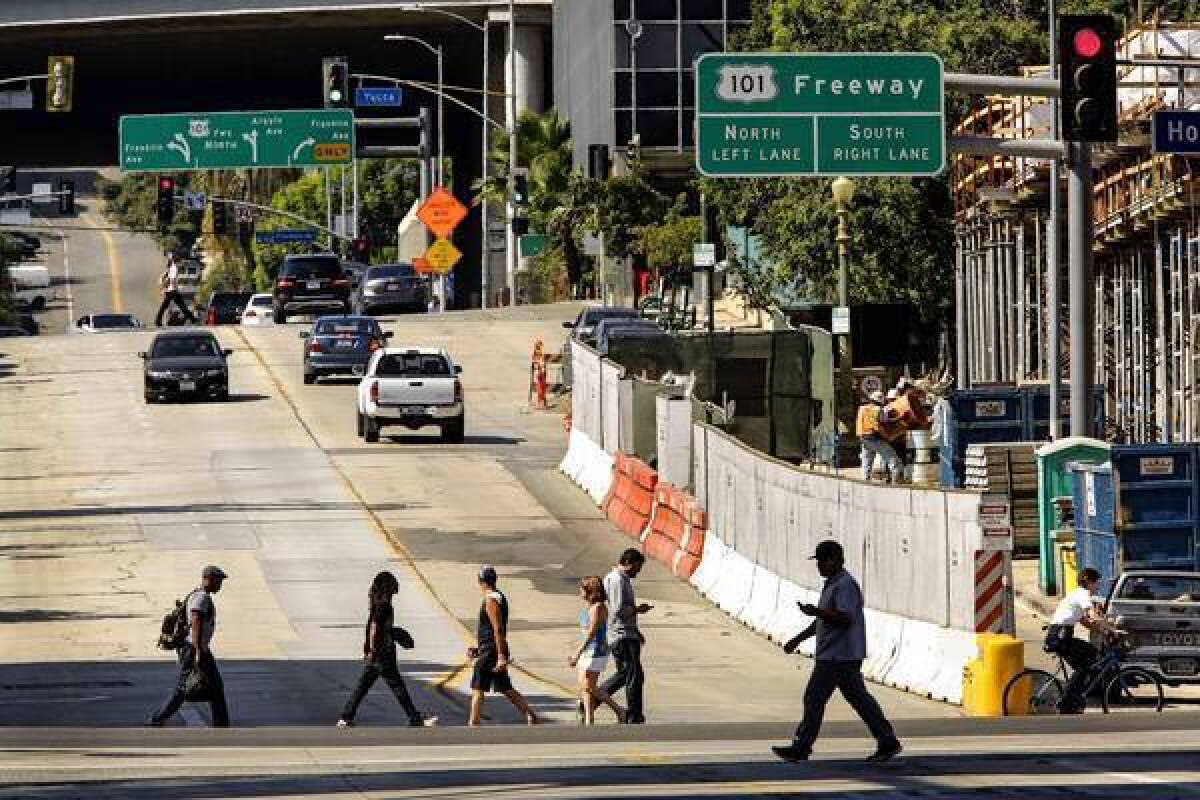L.A. Now Live: Hollywood skyscraper site may sit on active fault

California’s state geologist has declared that the Hollywood earthquake fault is active and may run directly underneath a skyscraper project approved by the Los Angeles City Council last week.
Join us at 9 a.m. when we talk with Times reporters Ron Lin and Rosanna Xia about the assertion, which raises new doubts about whether the 1-million-square-foot Millennium Hollywood project — which would create two of Hollywood’s tallest towers — should go forward without significantly more seismic safety testing than the city has required.
INTERACTIVE: Where’s the Hollywood fault?
Although the Hollywood fault has been known for several decades, geologists have never mapped its precise route on a block-by-block level. Steep slopes formed by old fault ruptures are visible from the street on both sides of the project location, where developers want to erect 39- and 35-story towers.
Several geologists interviewed by The Times have urged more extensive testing, such as digging dozens of bore holes or a trench, to determine exactly where the fault lies. If an earthquake fault is found underneath the Millennium towers, it could force a revision of architectural plans or scuttle the project.
California law bars construction of new buildings within 50 feet of an earthquake fault declared active and mapped by state officials. A building over a fault can be ripped in half during an earthquake.
Brian Lewis, a spokesman for the New York-based developer, said geologists did testing at the city’s direction and found no evidence of a fault at the site. But he added: “We’re happy to do more testing, and we fully intend to do more testing. We have no interest in building anything that would be unsafe.”
More to Read
Sign up for Essential California
The most important California stories and recommendations in your inbox every morning.
You may occasionally receive promotional content from the Los Angeles Times.










